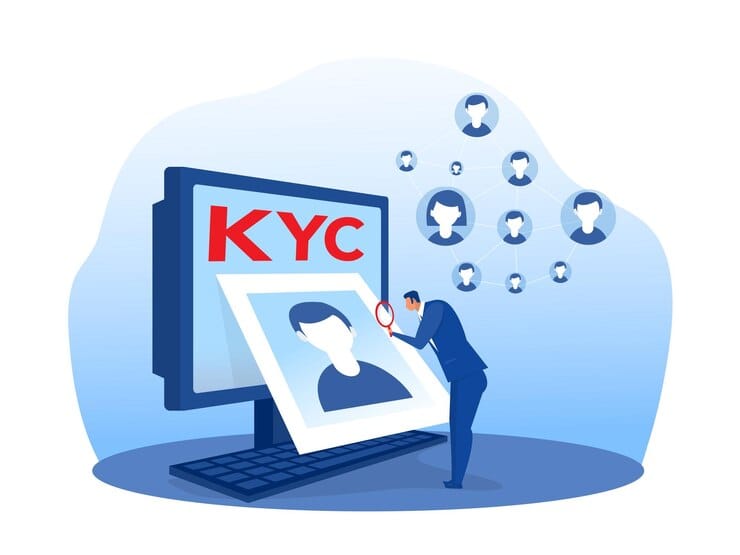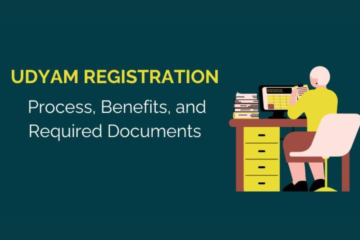Know Your Customer (KYC) regulations are a necessary part of doing business, but can also be complex and expensive to implement. With constantly evolving regulations and steep penalties for non-compliance, many companies struggle with KYC. Fortunately, new regulatory technology (RegTech) solutions are emerging to simplify Digital KYC processes and reduce costs.
In this post, we’ll explore:
– An overview of KYC regulations
– Common KYC pain points and costs
– How automation can improve KYC processes
– Considerations when selecting a KYC automation solution
– Steps to streamline KYC with automation
Let’s dive in!
What Are KYC Regulations?
KYC regulations require companies to verify the identity of their customers and monitor transactions for suspicious activity. This helps prevent money laundering, terrorist financing, and other financial crimes.
Major KYC regulations include:
The Bank Secrecy Act (BSA) – Requires US financial institutions to verify customer identity, monitor activity, and report suspicious transactions to the government.
FINCeN (Financial Crimes enforcement Network) Rules – US Treasury Department regulations to detect money laundering. Require verifying customer identity and enhanced due diligence (eDD) for high-risk individuals.
USA PATRIOT Act – Anti-money laundering laws that require verifying customer identity and continuously monitoring accounts. Includes CIP (Customer Identification Program) mandates.
eU AMLD5 & 6 – The latest european Union anti-money laundering directives that regulate customer due diligence and monitoring.
KYC rules vary between jurisdictions but generally follow the same principles of verifying identity, assessing risk, and monitoring activity. The complexity comes in interpreting exactly how to apply regulations.
Common KYC Pain Points and Costs
For many companies, KYC is a major pain point. Some common challenges include:
Manual Processes – Much of KYC relies on manual reviews and processes. This leads to slower customer onboarding, higher costs, and frustrated customers.
Complex Regulations – With nuanced and frequently changing regulations, keeping up with KYC rules is difficult. This leads to improper implementation and unintentional non-compliance.
Increasing Documentation – More regulations require collecting additional identity documents and data from customers, lengthening verification.
False Positives in Monitoring – Onerous transaction monitoring often flags innocent activity as suspicious, generating more alerts to review.
Outsourcing Challenges – Offloading KYC processes to BPOs sounds ideal, but relinquishing control can reduce quality.
These issues drive up operational costs. According to recent estimates, financial institutions spend over $150 billion per year on KYC compliance. For smaller companies, the average cost for onboarding a single client is $500-1000.
High KYC costs ultimately get passed on to consumers through higher banking fees, lending rates, and other charges. So improving KYC processes benefits companies, regulators, and customers alike.
How Can Automation Improve KYC Processes?
Automating parts of KYC workflows can significantly increase efficiency and reduce costs. Some examples include:
Digital Identity Verification – Automated identity document checks can instantly verify customers instead of manual reviews. This speeds onboarding.
Risk Scoring – Risk engines can automatically evaluate customers for potential risks to focus reviews on higher risk cases.
Transaction Monitoring – Using AI and rules, automated systems can flag truly unusual activity instead of every minor anomaly.
Workflow Management – Tools can route customer due diligence to appropriate reviewers and track process completion.
Auditing – Automated audit trails record KYC process data to demonstrate compliance to regulators.
Properly applying automation enables companies to manage rising KYC workloads without endless hiring. This translates into improved customer experiences, lower costs, and reduced regulatory exposure.
Key Considerations for KYC Automation Solutions
With many eKYC solutions emerging, firms should carefully evaluate options to find the right fit. Here are some key criteria:
Comprehensive workflows – The system should automate as much of KYC processes as possible end-to-end, beyond just document checking.
Configurable rules – Since regulations differ globally, the tools need flexibility to tailor KYC rules for each jurisdiction.
AI-powered – For reliable automation, the software should apply AI for identity verification, risk scoring, transaction monitoring, etc.
Fraud prevention – Solutions must detect new fraud patterns like synthetic identities, deepfakes, and social engineering.
Data privacy – Software must provide data minimization, access controls, encryption to protect customer personal information.
Cloud-based – Cloud delivery enables cost-efficient scaling to handle spikes in volumes during onboarding rushes.
Interoperable APIs – Open APIs help connect KYC tools into existing core systems like customer databases, AML software, and case management systems.
Reporting – Robust reporting and dashboard tools help demonstrate compliance controls to auditors and regulators.
Prioritizing these capabilities will ensure automation improves processes broadly across the KYC life cycle.
Steps to Streamline KYC with Automation
Transitioning to automated KYC requires careful planning:
Assess current KYC processes – Map out existing KYC workflows end-to-end. Identify pain points and areas with the most manual work.
Define requirements – Specify must-have features and functionality needed to address top challenges and gaps. engage compliance teams for insights.
evaluate technology options – Research automation tools that meet defined requirements. Compare vendors and request demos.
Start with a pilot – To test effectiveness, start with a pilot on a limited KYC process like identity verification. Assess impact and refine the approach.
Create implementation roadmap – Develop detailed plans for scaling automation to other processes. Prioritize based on highest cost/impact areas.
Integrate with core systems – Use APIs to connect new KYC tools into legacy systems like case management platforms. ensure data flows correctly.
Train staff – Train teams on using new systems to smooth the transition and adoption. Have staff try actual cases to get comfortable.
Refine over time – Continuously evaluate results and fine-tune use of automation. Add new features to expand capabilities.
Update processes – Revise KYC procedures to include automation tools across onboarding, reviews, and monitoring.
With careful execution, firms can transform KYC from a cost center into a strategic advantage. Automating verification, risk analysis, and monitoring improves efficiency, reduces workload, and provides better visibility into customer relationships.
The Bottom Line
KYC regulations provide essential safeguards against financial crimes but also create major burdens for companies. Automation solutions now allow streamlining compliance by reducing manual processes, lowering costs, and improving customer experience.
By selecting advanced regulatory technology tools and smartly integrating them into workflows, organizations can overcome key KYC challenges. Companies that modernize KYC will gain a distinct competitive edge.
In this post we’ve explored:
– The importance of KYC regulations and common pain points
– How automation can alleviate costs and inefficiencies
– Key criteria for selecting optimal KYC automation tools
– Steps to successfully implement automation for KYC
Automating KYC is now imperative for managing regulatory changes and rising costs. With the right strategy, companies can transform compliance into a strategic advantage. By leveraging automation, organizations can achieve compliance excellence while delivering standout customer experiences.
Digipay is a fintech platform that provides cashless banking, online payments, virtual cards, and digital financial solutions.
DigiPay.Guru is a globally recognized fintech solution provider that offers advanced digital payment solutions to banks, fintechs, financial institutions, NBFCs, and businesses. Our comprehensive suite called DG Bank provides products and services such as Mobile Money, Agency Banking, International Remittance, eKYC, Prepaid Cards, Merchant Acquiring, and Scan & Thru.
We help businesses design solutions to revolutionize financial markets by building mature, flexible, customizable, and future-proof digital platforms. Our solutions are available in both “License Version” and “SaaS Model”.
Keep an eye for more news & updates on Gossips!




